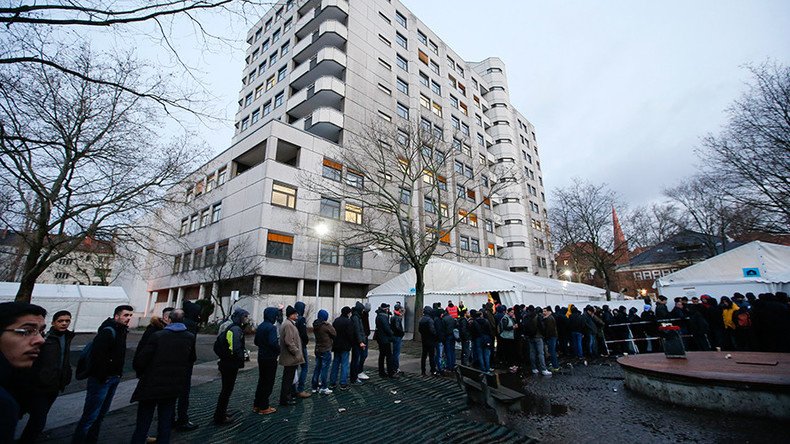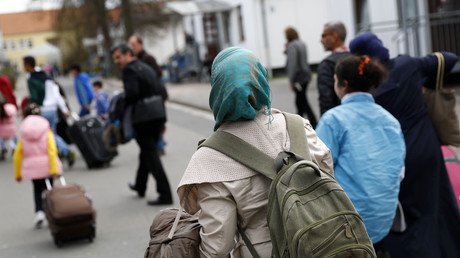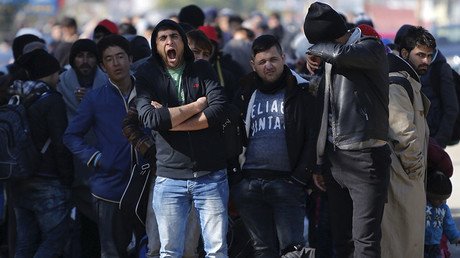Refugee crisis could cost Germany €400 billion — study

Receiving refugees could cost Germany up to €400 billion, says a new study conducted exclusively for the Zeit newspaper. The government reportedly expects 3.6 million refugees by 2020, with about half a million people arriving each year.
The results of the study, carried out by the Mannheim Center for European Economic Research (ZEW), suggest that the economic impact of the refugee crisis largely depends on the degree of the economic integration of the refugees, Zeit reported.
The faster refugees find a job and the better their skills are, the less they will cost the German government. If 60 percent of those coming to Germany complete training to reach the level of local residents, their profits would be substantially increased and refugee-related costs reduced to €218 billion or even less if integration speed is faster.
"Public spending on effective active measures for professional qualification and faster economic integration could produce good benefits in the form of taxes and contribution revenues as well as lower spending on the social needs [of refugees],” the study says, according to Zeit.
However, if the integration process is not so successful – meaning the migrants only start entering the labor market in 20 years from now and at the level of blue collars – the taxes they will produce aren’t going to be sufficient to cover social welfare and other associated costs, the study warns.
The “additional financial burden” could add up to as much as €398 billion for the budget, drawn out over several decades, the study warns.
Criminal gangs in Germany have been taking advantage of the huge influx of refugees by recruiting asylum seekers to join their ranks, Die Welt reported earlier this month. The gangs, run mostly by Arab families, are reportedly looking for “young, strong men.”
Around 1.1 million refugees came to Germany in 2015. Many German citizens have lost hope in the government's ability to handle the crisis, with a recent poll showing that 81 percent of people believe the crisis to be “out of control” under Merkel's leadership.
Angela Merkel’s open-door policy has repeatedly come under fire from the Christian Social Union (CSU), with Bavarian State President Horst Seehofer calling the chancellor’s decision to ease entry for people seeking asylum in Germany utterly “wrong.”
Frank-Christian Hansel from the Alternative for Germany Party, told RT last week that the German chancellor is breaking the law with her migrant policy.
“We understand all the refugees that would want to come to Germany. But we are talking about law. Germany is a country regulated by law. And the refugee crisis she made has nothing to do with our constitution. As you know, if there are other countries which are secure they cannot come and solicit asylum in Germany. So, she is breaking the law; compassion is one thing and morality is one thing, but policy is another thing," he said.
Europe continues to face the worst refugee crisis since World War II. Most asylum seekers arriving on the continent are from the Middle East and particularly Syria, where 250,000 people have been killed and more than 12 million displaced since a civil war began in 2011, according to UN figures.














